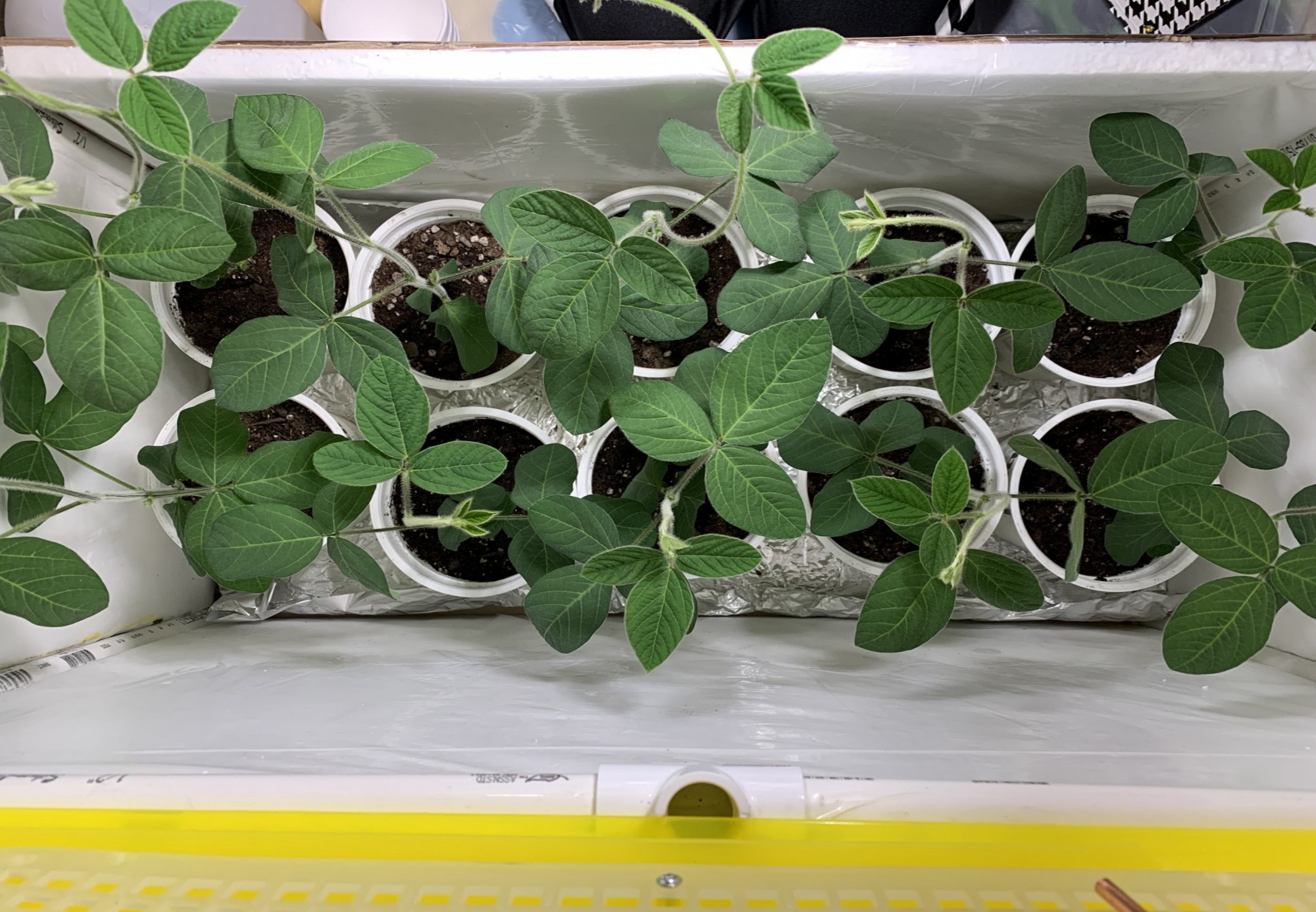The Effects of Exogenously Applied L-Tryptophan on the Nodulation and Overall Development of Soybeans Grown in Acidic Soil
What is the effect of exogenously applied l-tryptophan on the nodulation and overall development of soybeans grown in acidic soil?
Student
Joonwoo Park
School
Athens High School, Chauncey, OH
Supporting files
research-paper.pdf
Acidic soil severely inhibits legume nodulation and devastates crop yields worldwide. Among the many phytohormones that regulate nodulation, indole-3-acetic acid is known to improve the nodulation and stress tolerance between specific legumes and their symbiotic rhizobacteria. Importantly, Bradyrhizobium japonicum, a symbiotic soybean bacteria, has been observed to synthesize indole-3-acetic acid from l-tryptophan. This experiment tested the hypothesis that exogenously applied l-tryptophan could improve the nodulation and overall development of soybeans grown in acidic soils with Bradyrhizobium japonicum. Six trials were conducted, each involving three soybeans: a control, a soybean treated with an inoculant, and a soybean treated with an inoculant along with l-tryptophan. Treatments were applied prior to sowing, and the pH of sterile potting soil was adjusted to 4.9 with aluminum sulfate. Soybeans (n=18) were grown in a controlled environment for 23 days before harvesting. Student’s t-tests (p<0.05) were conducted using measurements regarding overall plant development and observed nodulation to gauge the significance of the experimental treatment. Although the limited sample set yielded results which fell short of statistical significance, weighing of dry samples and observations of nodulation generally suggested that the experimental treatment improved overall development. These initial results may show promise in the development of an inexpensive method farmers can emulate to overcome the effects of acidic soil on soybean production. 
